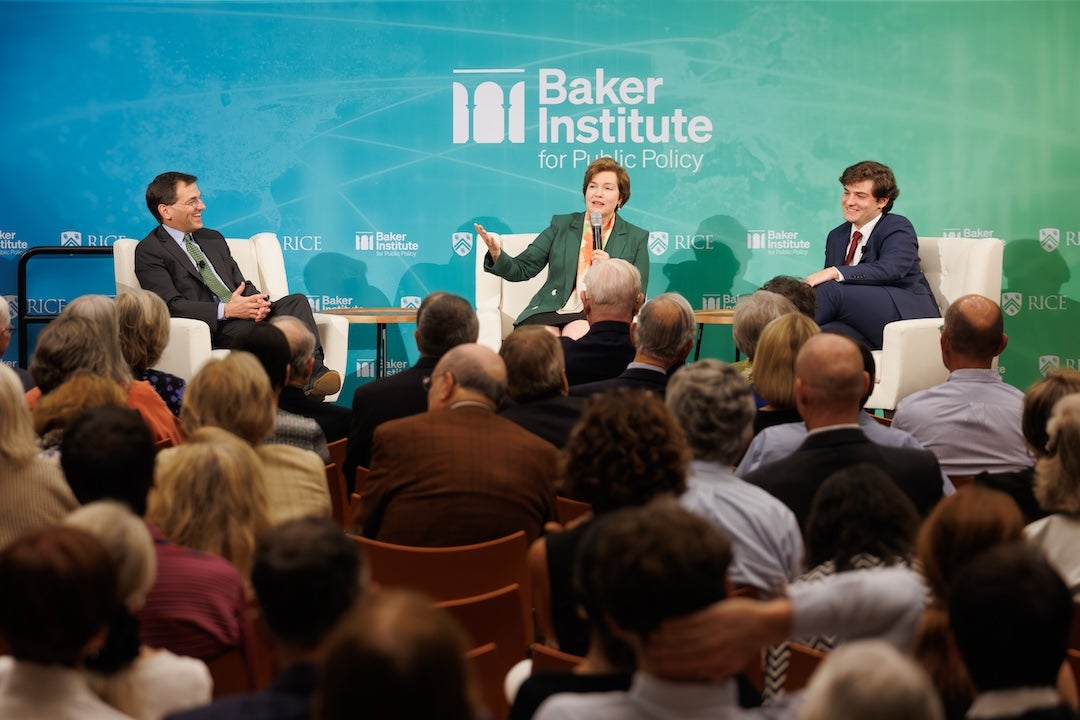The New York Times’ chief White House correspondent Peter Baker and staff writer at The New Yorker Susan Glasser had a moderated conversation about the 2024 election Sept. 5 at Rice University’s Baker Institute for Public Policy. Baker and Glasser have authored several books about American politics, including “The Man Who Ran Washington: The Life and Times of James A. Baker III.” The dialogue was a comprehensive analysis of the key issues, campaign strategies and electoral dynamics shaping the upcoming election.
“I’m delighted to be back here at the Baker Institute because I do think that it’s been a wonderful addition,” Glasser said. “It’s important to have a think tank that is outside of Washington and yet one that still speaks to Washington in the way that the Baker Institute has over time.”

Glasser spoke of the development of her and Peter Baker’s book on James Baker, the former U.S. secretary of state, and how the two writers realized that extreme bipartisan division was already taking root during his time — long before former President Donald Trump became a political actor. Peter Baker said that every election is touted as the most important election in U.S. history but that this year that’s truer than ever.
“We are in a red/blue era,” Peter Baker said. “We are in an era where people feel very tribal about their pick, their party, about people they believe in. And I think that tells us something about where we are as people, and I think the question of the stakes is pretty important, because obviously Trump made clear in many ways that he sees his role if he wins again to not just disrupt in the way he did in his first term but to rethink how American government works.”
Glasser noted that there’s been an increasing nationalization of elections; she linked the idea that the presidential election is the only one of importance and the decline of local media and lack of coverage of grassroots politics with the shrinking power of political parties.
“This may seem contradictory: You have this nationalization of our politics, but you also have the decline of the political parties. And I think without the hollowing out of the political parties and their diminishment, you never would have had a Donald Trump phenomenon. Trump was an outsider who came in and executed a hostile takeover, in effect, of the Republican party, which was almost universally opposed to him at the institutional level in 2016. Today, he has his daughter-in-law running the RNC (Republican National Convention).”

Peter Baker explained how James Baker was able to effectively work across party lines from the very beginning of his tenure as chief of staff and secretary of the treasury for President Ronald Reagan, an idea that is becoming almost unheard of in today’s political climate.
“That’s one of the big themes in the book that Susan and I wrote,” he said. “Baker believed — very strongly and still does — in loyalty and politics and winning elections. But when the election was over, he wanted to get something done.”
View the entire conversation on the Baker Institute’s YouTube channel and stay tuned for an upcoming series of policy briefs focused on the 2024 election from across the institute’s centers and programs as well as the research experts across Rice’s campus. Subscribe to the Baker Institute’s newsletter to stay up to date.

